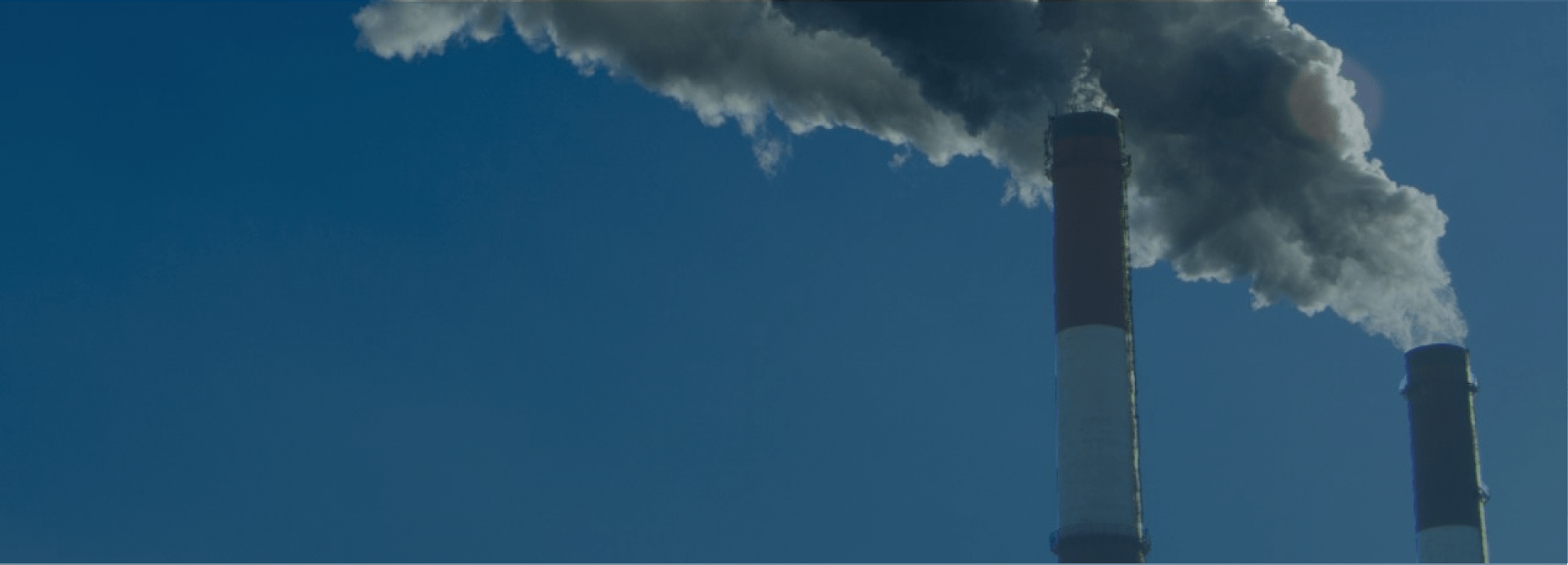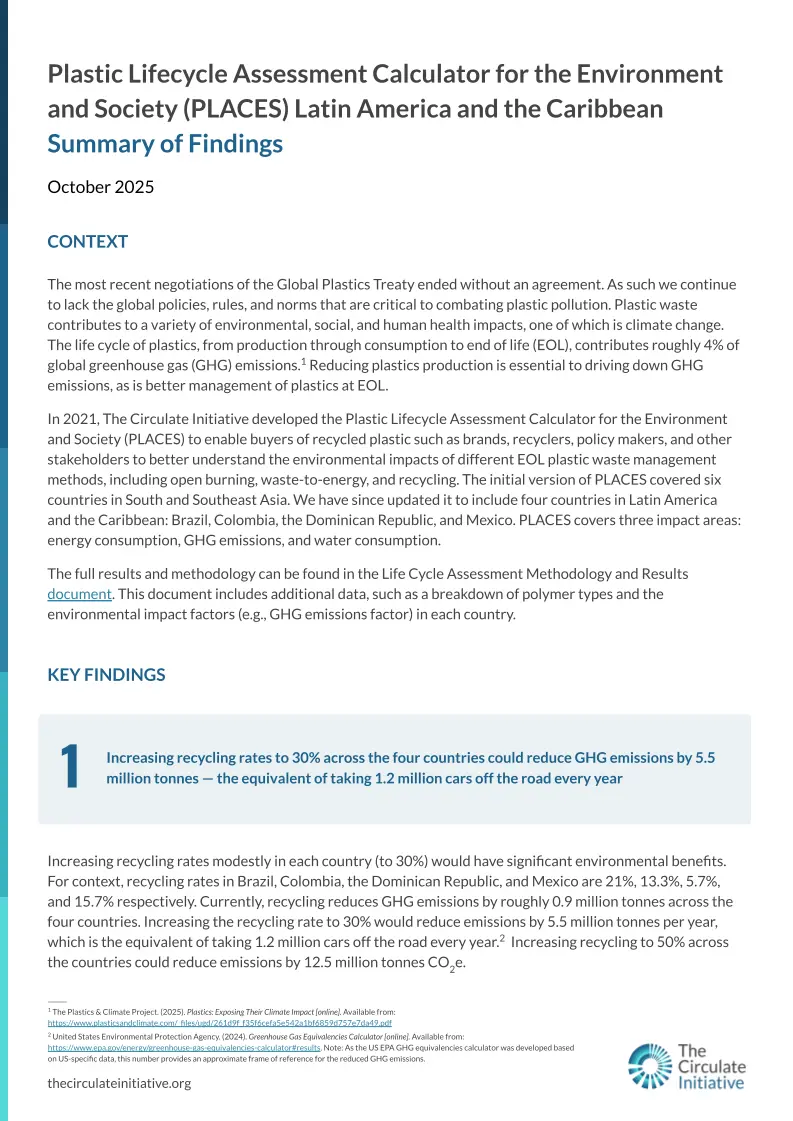

Plastic Lifecycle Assessment Calculator for the Environment and Society (PLACES) Latin America and the Caribbean: Summary of Findings
The life cycle of plastics, from production through consumption to end of life contributes roughly 4% of global greenhouse gas (GHG) emissions. Reducing plastics production is essential to driving down GHG emissions, as is better management of plastics at end of life (EOL).
Building on The Circulate Initiative’s recently updated Plastic Lifecycle Assessment Calculator for the Environment and Society (PLACES), which now includes four countries in Latin America and the Caribbean: Brazil, Colombia, the Dominican Republic, and Mexico, this report summarizes the key findings from the underlying LCA conducted. A shift to recycling in these countries, particularly from open burning of plastic waste, can bring about significant GHG reductions.
Key takeaways from this report include:
- Increasing recycling rates to 30% across the four countries could reduce GHG emissions by 5.5 million tonnes – the equivalent of taking 1.2 million cars off the road every year.
- Open burning of plastic waste is 15 times more GHG intensive than sanitary landfills and open dumps, and generates more GHG emissions than are saved through recycling.
- Even at relatively low rates, open burning of plastic waste in Brazil and Mexico drives a significant share of GHG emissions.
Further analysis and the detailed methodology are available here in English, Portuguese and Spanish.

Read Report
*By clicking the "Download" button, you are agreeing to The Circulate Initiative’s Terms of Use and Privacy Policy.